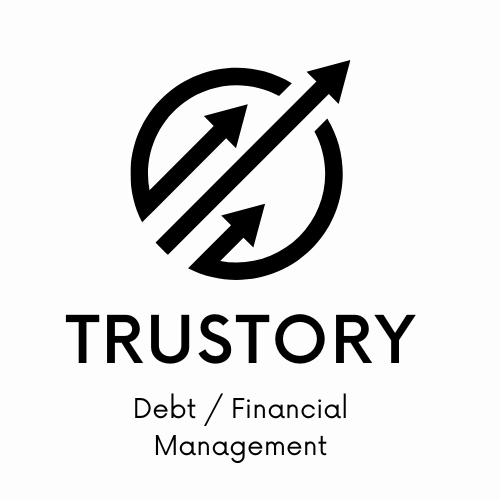Recognizing the Warning Signs of Over-Indebtedness in South Africa: A Complete Guide
Financial stress affects millions of South African households, yet many people struggle to recognize when debt becomes dangerous. Understanding the signs of over-indebtedness South Africa faces today is crucial for protecting your financial future and mental well-being. Over-indebtedness occurs when your debt obligations exceed your ability to repay them without compromising your basic living standards.
This comprehensive guide will help you identify the warning signs, understand the broader context of household debt in South Africa, and discover available resources for assistance. Whether you’re concerned about your own financial situation or helping a loved one, recognizing these signs early can prevent a manageable situation from becoming a financial crisis.
Understanding Over-Indebtedness: What Every South African Should Know
Defining Over-Indebtedness in the South African Context
Over-indebtedness in South Africa refers to a situation where individuals or households cannot meet their debt obligations without severely compromising their basic living expenses. The National Credit Regulator defines this as spending more than 75% of your gross monthly income on debt repayments, including mortgage bonds, credit cards, personal loans, and store accounts.
Unlike temporary financial difficulties, over-indebtedness represents a persistent state where your debt-to-income ratio becomes unsustainable. This condition affects not only your immediate financial stability but also your long-term economic prospects, credit rating, and overall quality of life.
The Current State of Household Debt in South Africa
Statistics on household debt South Africa reveal alarming trends that highlight the severity of this issue. According to recent data from the South African Reserve Bank, household debt-to-disposable income ratio has remained consistently high, often exceeding 70% for middle-income families.
| Income Bracket | Average Debt-to-Income Ratio | Most Common Debt Types |
|---|---|---|
| R0 – R15,000 | 85-95% | Unsecured loans, retail accounts |
| R15,000 – R40,000 | 75-85% | Vehicle finance, credit cards |
| R40,000 – R80,000 | 65-75% | Home loans, personal loans |
| Above R80,000 | 55-65% | Investment properties, business loans |
Key Signs of Over-Indebtedness South Africa Families Face Today
Financial Warning Signs You Can’t Ignore
The most obvious signs of over-indebtedness South Africa households experience include consistently struggling to meet minimum monthly payments. When you find yourself borrowing money to pay existing debts, or when your debt repayments exceed 40% of your monthly income, you’re entering dangerous territory.
Other critical financial indicators include:
- Only making minimum payments on credit cards
- Maxed-out credit limits across multiple accounts
- Frequently overdrawing your bank account
- Unable to save any money each month
- Considering payday loans or loan sharks
Many South Africans also experience the “credit shuffle” – moving balances between different credit products to manage payments. This strategy typically provides only temporary relief while increasing total debt burden through fees and higher interest rates.
Behavioral Changes That Signal Debt Problems
Beyond financial metrics, behavioral changes often reveal emerging debt problems. You might notice yourself avoiding conversations about money with family members, hiding purchases, or feeling anxious when checking bank statements. These emotional responses to financial pressure are common early warning signs.
Social isolation frequently accompanies financial stress. Over-indebted individuals often decline social invitations, skip family gatherings, or avoid activities that involve spending money. This withdrawal can strain relationships and compound the effects of over-indebtedness on mental health.
How to Calculate Your Debt-to-Income Ratio
How to calculate debt-to-income ratio is essential knowledge for assessing your financial health. This calculation provides a clear picture of your debt burden relative to your earning capacity.
Follow these steps for accurate calculation:
- Add all monthly debt payments (excluding basic utilities)
- Divide by your gross monthly income
- Multiply by 100 for percentage
| Debt-to-Income Ratio | Financial Status | Action Required |
|---|---|---|
| Below 36% | Healthy | Maintain current habits |
| 36% – 50% | Manageable | Monitor closely, avoid new debt |
| 50% – 75% | Stressed | Create debt reduction plan |
| Above 75% | Over-indebted | Seek professional help immediately |
The Hidden Impact: Effects of Over-Indebtedness on Mental Health
Psychological Consequences of Financial Stress
The effects of over-indebtedness on mental health extend far beyond financial concerns, creating a cycle of stress that impacts every aspect of daily life. Research consistently shows strong correlations between debt problems and mental health conditions including anxiety, depression, and chronic stress disorders.
Financial pressure triggers the body’s stress response system, leading to physical symptoms such as headaches, insomnia, and digestive problems. Many over-indebted individuals report feeling constantly worried about money, experiencing panic attacks when bills arrive, or feeling hopeless about their financial future.
The shame associated with debt problems often prevents people from seeking help early. This delay typically worsens both financial and mental health outcomes, as problems compound while individuals struggle alone with mounting pressure.
Family and Social Relationships Under Strain
Over-indebtedness significantly impacts family dynamics and social relationships. Financial stress frequently becomes a source of conflict between partners, with arguments about spending, budgeting, and priorities becoming increasingly common and intense.
Children in over-indebted households often experience secondary effects, including reduced educational opportunities, limited extracurricular activities, and exposure to family tension. Parents may feel guilt and inadequacy about their inability to provide financial security, further impacting family relationships.
The social stigma surrounding debt problems can lead to isolation from friends and community networks. Many individuals withdraw from social activities to hide their financial difficulties, losing important support systems precisely when they need them most.
Finding Help: Government Assistance for Over-Indebted Families
National Credit Act Protections
Government assistance for over-indebted families in South Africa includes several important protections under the National Credit Act. This legislation provides frameworks for debt review, credit rehabilitation, and consumer protection against predatory lending practices.
The Act recognizes over-indebtedness as a legitimate financial difficulty and provides structured solutions through registered debt counselors. These professionals can negotiate with creditors, restructure payment plans, and provide legal protection from harassment or legal action during the debt review process.
Debt Counseling Services
Professional debt counseling offers structured approaches to managing over-indebtedness through comprehensive financial assessment an

